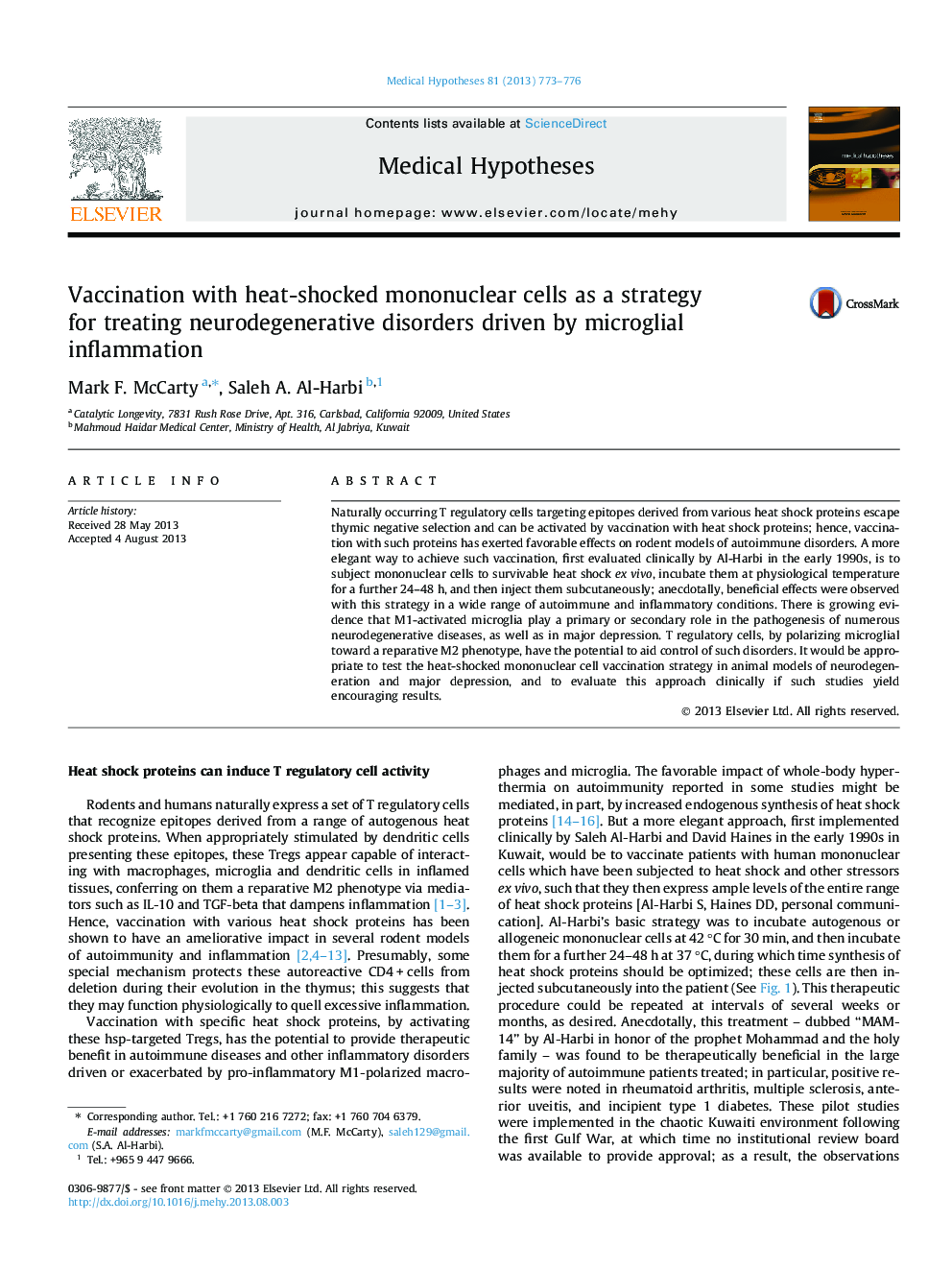| Article ID | Journal | Published Year | Pages | File Type |
|---|---|---|---|---|
| 5812126 | Medical Hypotheses | 2013 | 4 Pages |
Naturally occurring T regulatory cells targeting epitopes derived from various heat shock proteins escape thymic negative selection and can be activated by vaccination with heat shock proteins; hence, vaccination with such proteins has exerted favorable effects on rodent models of autoimmune disorders. A more elegant way to achieve such vaccination, first evaluated clinically by Al-Harbi in the early 1990s, is to subject mononuclear cells to survivable heat shock ex vivo, incubate them at physiological temperature for a further 24-48Â h, and then inject them subcutaneously; anecdotally, beneficial effects were observed with this strategy in a wide range of autoimmune and inflammatory conditions. There is growing evidence that M1-activated microglia play a primary or secondary role in the pathogenesis of numerous neurodegenerative diseases, as well as in major depression. T regulatory cells, by polarizing microglial toward a reparative M2 phenotype, have the potential to aid control of such disorders. It would be appropriate to test the heat-shocked mononuclear cell vaccination strategy in animal models of neurodegeneration and major depression, and to evaluate this approach clinically if such studies yield encouraging results.
